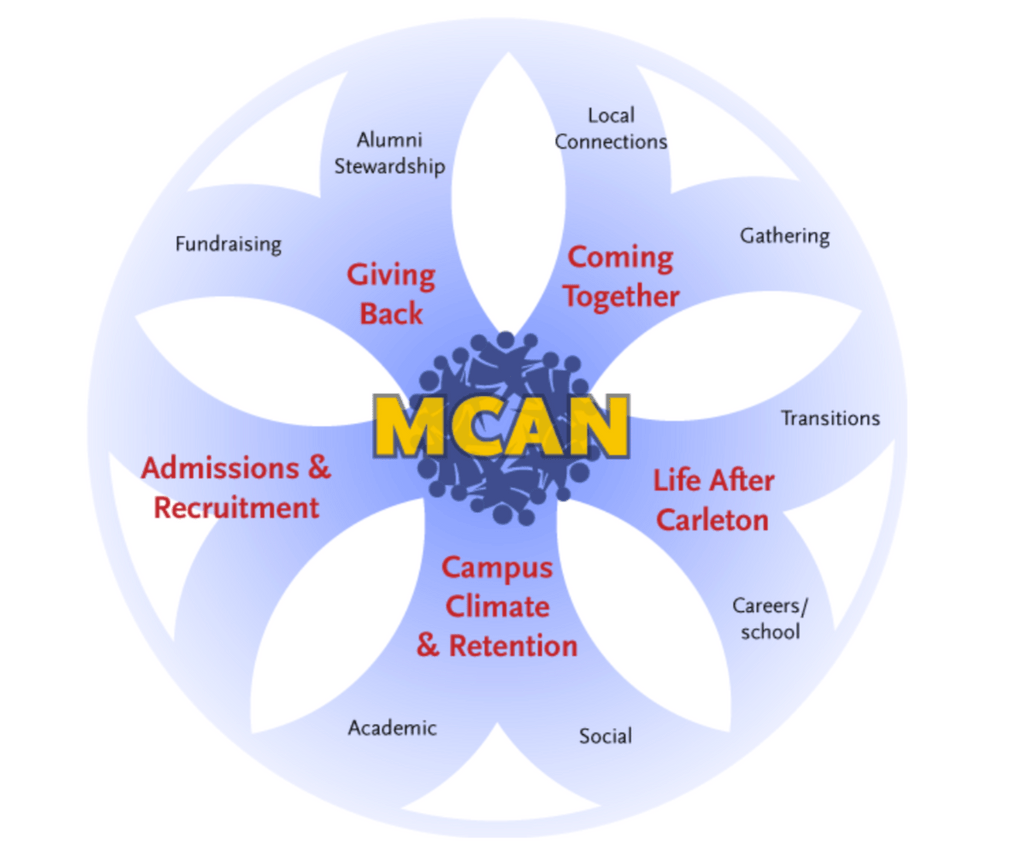In this edition of inFOCUS, we interviewed an alum of Carleton who works to improve the educational environment in high schools as well as improve the environment of Carleton for students of color. In this interview, not only will you learn about her path through Carleton and her career in education, but you will learn about how MCAN supports students at Carleton.
1. Could you talk about your path to being an educator? What role did your master’s degree play in this?
I majored in Biology at Carleton and obtained a Master of Public Health from University of Illinois-Chicago. After working in health promotion and education for a few years, I realized that I loved education and decided to move into a classroom setting as a high school Biology teacher. I recently moved into a behavior interventionist position, which I liken to being a public health professional who is tasked with monitoring and improving the educational environment in a high school.
2. Can you talk about your work as a Behavior Interventionist?
Far too often, discipline and punishment are used interchangeably, when they are actually opposites. Discipline involves teaching and learning, and my role is to provide direct support for students who struggle to meet our expectations. In my job, I help them learn to analyze the roots of their behavior, set goals, and advocate for themselves in a positive manner. I conduct mediations and facilitate small group sessions focused on teaching skills to help students become more successful. One of my district’s core values is all learning is social–emotional, and I help teachers build relationships and provide consistent classroom management through professional development and individual consultations.
3. What skills/ideas that you learned at Carleton that have been useful in life?
Two of the greatest ideas that I learned from Carleton are to always be of service to others and learning comes in many forms. Knowing I could help facilitate positive change in my school while providing a personal challenge to myself was part of the reason I moved into the behavior interventionist role. Carleton taught me so much more than just content; I possess world class interpersonal and executive functioning skills. In my job, I collect and analyze data, evaluate effectiveness of programming and disseminate information to parents, students and staff, all transferable skills that I learned in my Biology classes at Carleton. It has been said that teachers make more minute-by-minute decisions than brain surgeons! Thanks to Carleton, I am a critical thinker who is able to quickly problem solve and clearly communicate.
4. Can you tell me about the MCAN and what it means to you?
The Multicultural Alumni Network exists to support alumni efforts on behalf of students and alumni who identify as persons of color. We seek to support the college’s mission of recruiting and retaining diverse students and provide a community in which our alumni can be actively involved. I was involved with Multicultural Affairs while at Carleton (now OIIL), and my work with MCAN feels like a natural extension of those experiences. Multicultural Affairs was an extremely important and integral part of my Carleton experience, providing a supportive community in a sometimes challenging environment. Many alumni of color have had either negative or unequal experiences at Carleton, and my hope is that the work of the MCAN Board helps eliminate some of these experiences. MCAN provides a community in which I can continue to interact with my peers and build new relationships with alumni across many class years after graduation.
